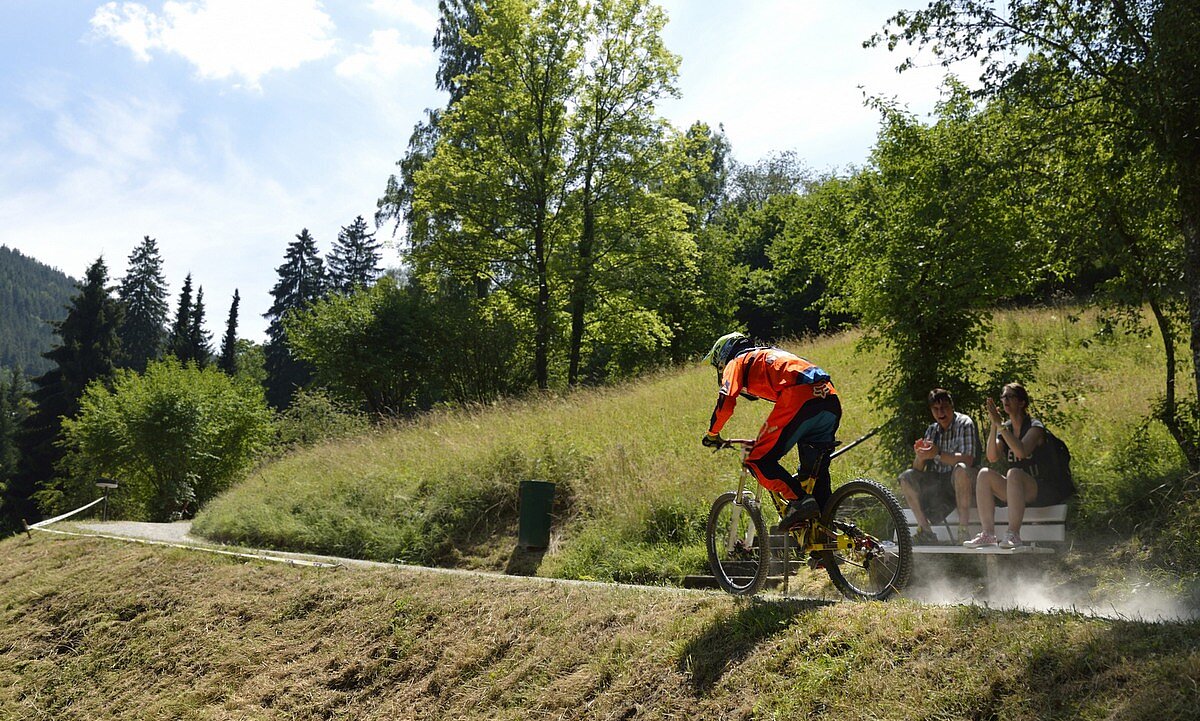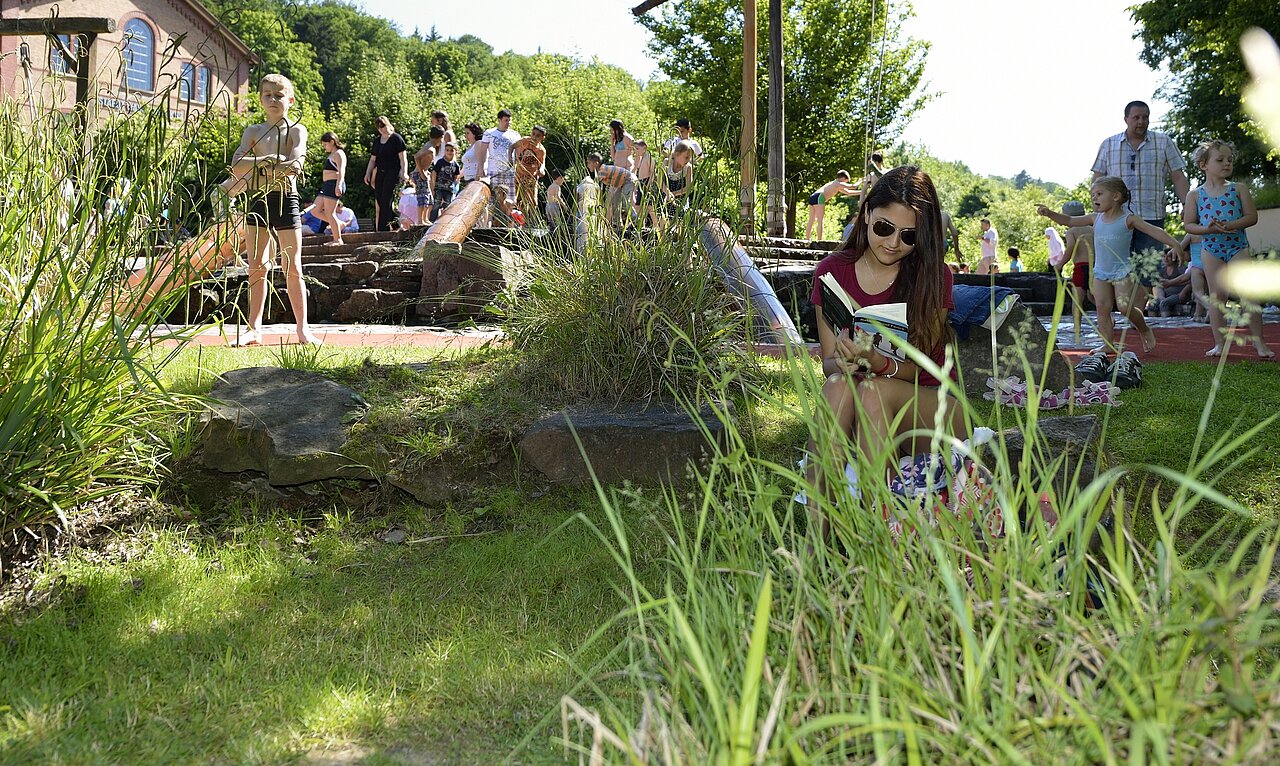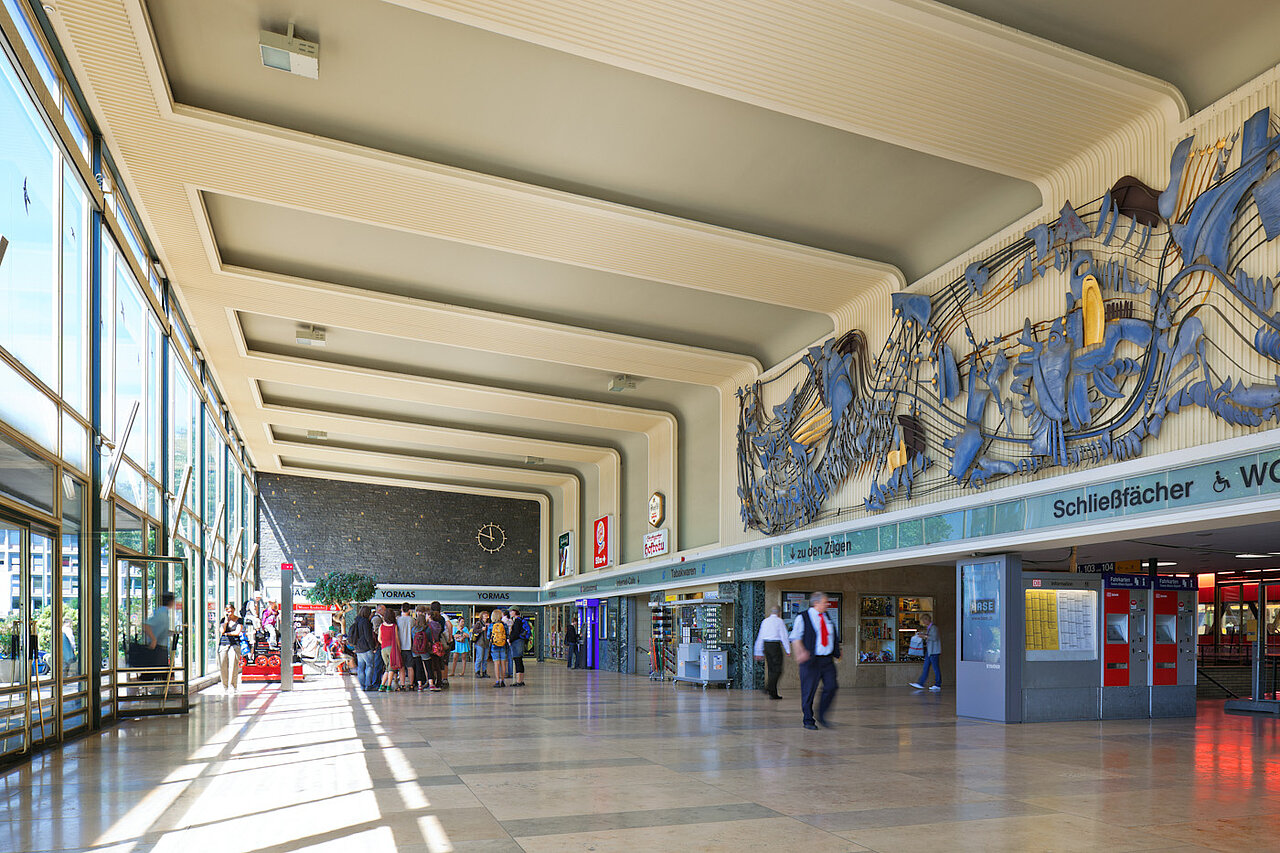Activities

Pforzheim is an ideal starting point for a country outing, as it is the point of departure for countless cycling and hiking trails through the Black Forest. The Westweg hiking trail, for example, the oldest and probably the best-known hiking trail in the Black Forest, starts at the “golden gate” near the Kupferhammer. For the recreational hiker, there are also many hiking trails in and around Pforzheim.
Explore the forests and the countryside on a leisurely cycle tour with the family or a sporting trip with friends. Whether you follow the three rivers Enz, Nagold and Würm or the Black Forest Panorama cycle track over the beautiful heights of the Black Forest, you will find plenty of cycling opportunities in and around Pforzheim.
Parks and Gardens

Ever since the State Horticultural Show was held in 1992, the Enzauenpark, with the largest beer garden in the area, has turned into a magnet for visitors. It is open all year round. Around 100 events are held here from April to October for people of all ages. The many leisure and recreational facilities in the park also attract visitors.
The municipal garden is also a popular park, where on warm days you can relax and have a picnic. Located along the banks of the Nagold, it can be reached from the centre on foot and is home to the Reuchlinhaus with the jewellery museum.
The historic park of Pforzheim’s main cemetery in the northern part of the city is one of the loveliest cemeteries in Southwest Germany. As it was spared from the raids in the Second World War, sculptures and artfully designed gravestones can still be found here.
Architecture and Public Spaces

Pforzheim’s city centre invites you to discover the Federal Republic of Germany in its “teens”. After the devastation of the war and the defeat of the dictatorship, the city had the opportunity to start all over again, and the desire at that time for freedom and openness is reflected in the light, transparent architecture, the use of glass and the delight in lavish handling of space.
Some of the historical cultural monuments survived or were restored, such as the Bezirksamtsturm and the Archivbau. The Bezirksamtsturm is part of the cluster of buildings built between 1901 and 1903 as the grand ducal district office of Baden with adjoining official residence. The Archivbau next to the Schloßkirche was built on the inner side of the castle wall in around 1560, parts of which can still be seen inside today. The Landschaftsstube is the castle’s only remaining reception room.
Many open spaces in the city centre, such as the rooftop garden above the Schlössle-Galerie, the Schloßkirchenpark and the Italian piazza by the Roßbrücke invite you to slow down and linger awhile. The Blumenhof between the Schloßkirche and the Barfüßerkirche, which used to be a Franciscan monastery, is a little oasis of peace right in the middle of town. Here stands the three-river fountain created by Emil Salm. The three river Graces symbolise the rivers Enz, Nagold and Würm, which flow through the three-valley city.
The market place with its charming fountains and the new town hall overlooking the square, is the hub of the modernly reconstructed city centre. The town hall chimes were inaugurated in 1973. Several times a day, the 46 bronze bells play melodies matching the time of the year. Next to the new town hall, which was built from 1969 to 1973 the old town hall dating back from 1911/12 holds its own in the market place.
